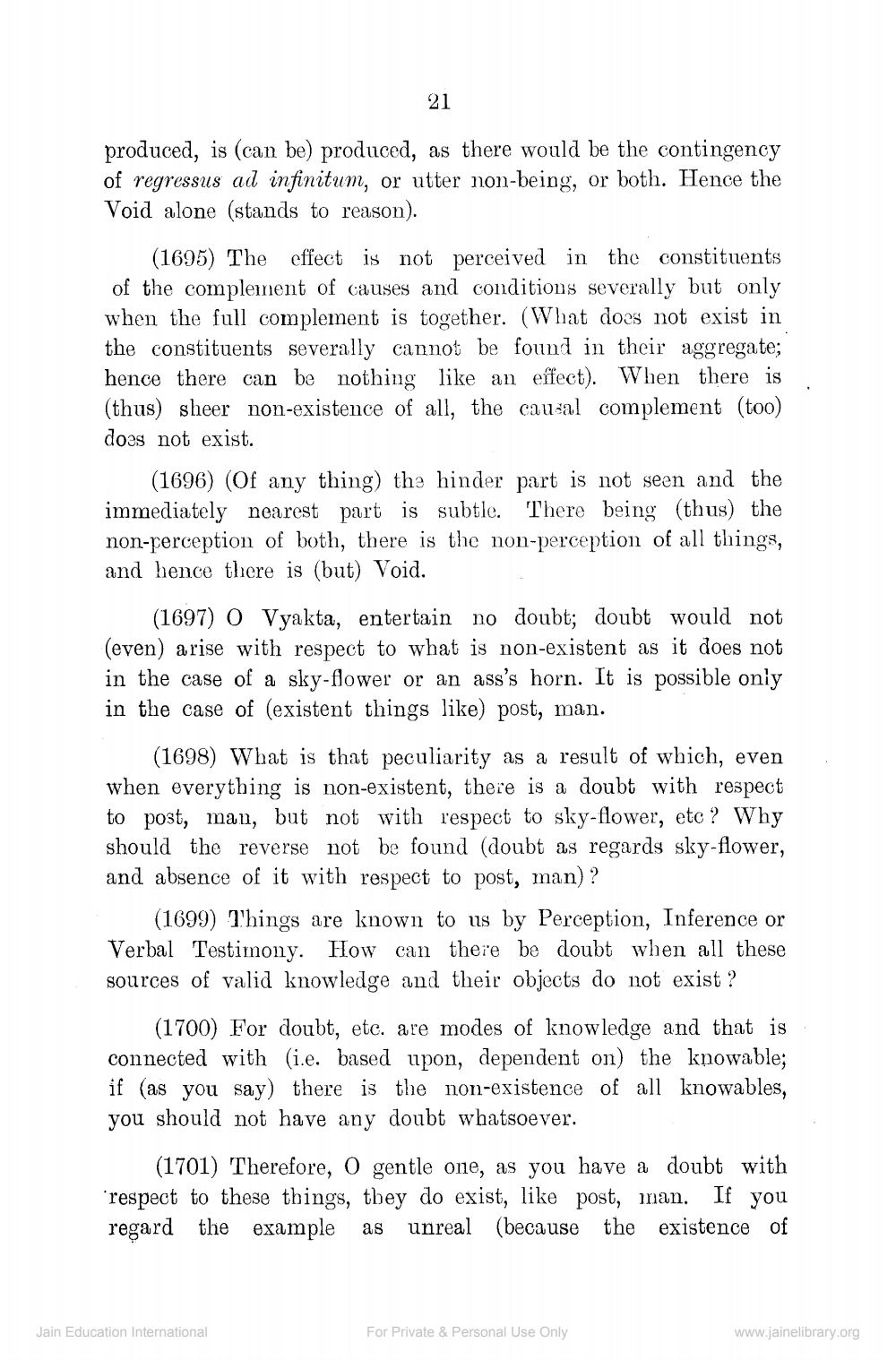________________
21
produced, is (can be) produced, as there would be the contingency of regressus ad infinitum, or utter non-being, or both. Hence the Void alone (stands to reason).
(1695) The effect is not perceived in the constituents of the complement of causes and conditions severally but only when the full complement is together. (What does not exist in the constituents severally cannot be found in their aggregate; hence there can be nothing like an effect). When there is (thus) sheer non-existence of all, the causal complement (too) does not exist.
(1696) (Of any thing) the hinder part is not seen and the immediately nearest part is subtle. There being (thus) the non-perception of both, there is the non-perception of all things, and hence there is (but) Void.
(1697) O Vyakta, entertain no doubt; doubt would not (even) arise with respect to what is non-existent as it does not in the case of a sky-flower or an ass's horn. It is possible only in the case of (existent things like) post, man.
(1698) What is that peculiarity as a result of which, even when everything is non-existent, there is a doubt with respect to post, man, but not with respect to sky-flower, etc? Why should the reverse not be found (doubt as regards sky-flower, and absence of it with respect to post, man)?
(1699) Things are known to us by Perception, Inference or Verbal Testimony. How can there be doubt when all these sources of valid knowledge and their objects do not exist?
(1700) For doubt, etc. are modes of knowledge and that is connected with (i.e. based upon, dependent on) the knowable; if (as you say) there is the non-existence of all knowables, you should not have any doubt whatsoever.
(1701) Therefore, O gentle one, as you have a doubt with respect to these things, they do exist, like post, man. If you regard the example unreal (because the existence of
as
Jain Education International
For Private & Personal Use Only
www.jainelibrary.org




